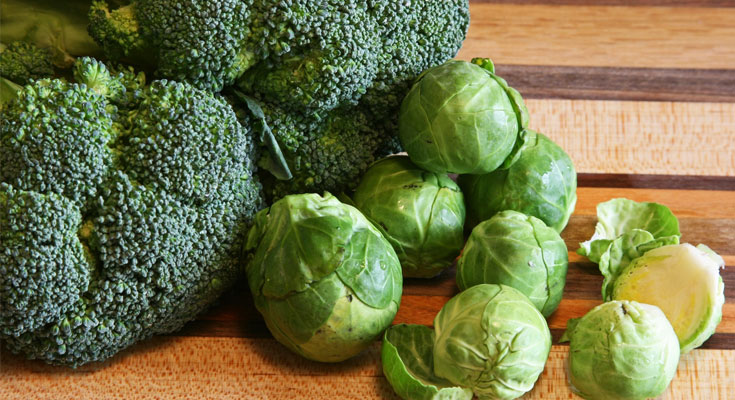
Anti-cancer properties of cruciferous vegetables
Published to Latest News on Oct 01, 2021
Study confirms the safety and the cancer-targeting ability of broccoli and other cruciferous vegetables
Sulforaphane, one of the primary phytochemicals in broccoli and other cruciferous vegetables has been shown for the first time to selectively target and kill cancer cells while leaving normal prostate cells healthy and unaffected.
The findings, made by scientists in the Linus Pauling Institute at Oregon State University, are another important step forward for the potential use of sulforaphone in cancer prevention and treatment. Clinical prevention trials are already under way for its use in these areas, particularly prostate and breast cancer.
It appears that sulforaphane, which is found at fairly high levels in broccoli, cauliflower and other cruciferous vegetables, is an inhibitor of histone deacetylase, or HDAC enzymes. HDAC inhibition is being targeted from both a pharmaceutical and dietary approach, scientists say.
"It's important to demonstrate that sulforaphane is safe if we propose to use it in cancer prevention or therapies," said Emily Ho, a principal investigator in the Linus Pauling Institute, lead author on the study and associate professor in the OSU Department of Nutrition and Exercise Sciences.
"Just because a phytochemical or nutrient is found in food doesn't always mean it is safe, and a lot can also depend on the form or levels consumed," Ho said. "But this does appear to be a phytochemical that can selectively kill cancer cells, and that's always what you look for in cancer therapies."
The findings were published in Molecular Nutrition and Food Research, a professional journal. Research was supported by the National Cancer Institute, National Institute of Environmental Health Sciences and the OSU Agricultural Experiment Station.
Naturopathic Nutrition Association June 2011
Tags: health
